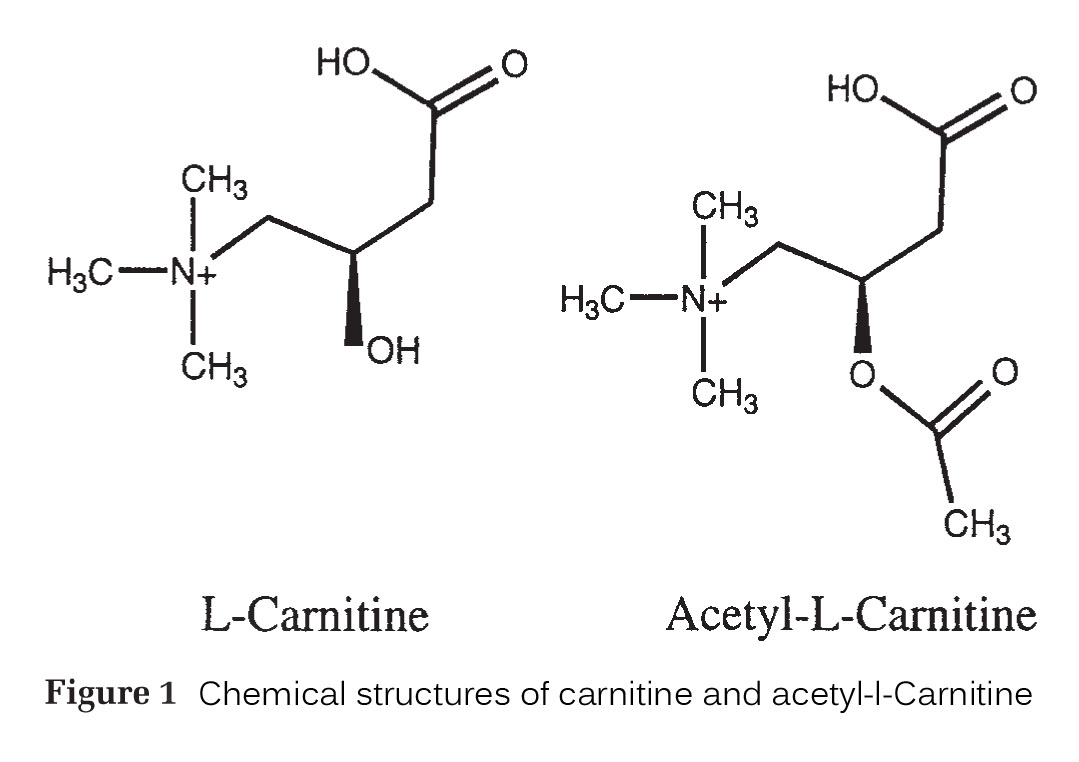Acetyl L-Carnitine and Brain Health
October 10, 2015

Acetyl-L-Carnitine is a source of the naturally occuring amino acid Carnitine. Carnitine is involved with the production of the energy-rich compounds that fuel the body. Although carnitine is actively taken up into cells, different tissues appear to prefer different forms, for example the myocardium (heart muscle) prefers propionyl-L-Carnitine. Acetyl-L-Carnitine occurs naturally in the human brain. The Acetyl part of the molecule is linked with acetylcholine (a chemical messenger required to transit nerve impulses) which improves the brains ability to function and communicate with other organs. Acetyl-L-Carnitine appears to be the best form to take for brain health.

The Benefit of Acetyl-L-Carnitine
Alzheimer's Disease- this progressive form of dementia which typically leads to a reduction of short-term memory, behavioral and intellectual performance has been shown to respond to Acetyl-L-Carnitine.
Age Related Memory Defect- typically memory deteriorates as the brain ages, Acetyl-L-Carnitine slows the process.
Depression in the Elderly- improvement has been seen in this condition which can be brought about by the physical and mental strains of ageing and by biochemical changes in the brain.
Strokes- experimental animal models of cerebral injury suggested Acetyl-L-Carnitine improved nerve function outcome, prevented free radical damage, normalized the processing of energy rich compounds in the brain tissue and decreased lactic acid content as blood flow returned to normal.
Verbal and Visual Memory- improvement in recognition and communication skills which can suffer with age and Alzheimers disease, was observed.
Down's Syndrome- improvements in visual memory and attention were noted compared to those on a placebo.
Properties
Carnitine is a vitamin like substance that is responsisble for the transport of long chain fatty acids into the mitochondria (small vessels inside the cells where the controlled release of energy takes place). Without carnitine the fats cannot enter the mitochondria and there is a reduction in avaliable energy.
Acetyl-L-Carnitine acts as a powerful antioxidant within the brain cells and stabilizes cell membranes. The acetyl group that is part of the Acetyl-L-Carnitine contributes to the production of the neurotransmitter acetylcholine which is required for mental function. Neurotransmitters are chemical substances that are released from nerve endings allowing the passing on of electrical impulses to the nerves, muscles and glands that they influence.
In summary, Acetyl-L-Carnitine maximizes the production of energy, promotes the stability of cell membranes (restoring age-related membrane changes) and improves the quality of the nerve impulses in the central nervous system.
Contra-indications/ precautions
Side effects from taking Acetyl-L-Carnitine are uncommon. Skin rash, increased appetite, body odour, agitation, nausea and vomiting have been reported. Beacuse it is an amino acid, it should be taken between meals on an empty stomach for its therapeutic effect to be achieved.
NOT RECOMMENDED FOR USE DURING PREGNANCY OR LACTATION.
[shopify product=http://shop4supplements.co.uk/products/acetyl-l-carnitine-250mg-30-tablets]
Leave a comment
Comments will be approved before showing up.
 Acetyl-L-Carnitine is a source of the naturally occuring amino acid Carnitine. Carnitine is involved with the production of the energy-rich compounds that fuel the body. Although carnitine is actively taken up into cells, different tissues appear to prefer different forms, for example the myocardium (heart muscle) prefers propionyl-L-Carnitine. Acetyl-L-Carnitine occurs naturally in the human brain. The Acetyl part of the molecule is linked with acetylcholine (a chemical messenger required to transit nerve impulses) which improves the brains ability to function and communicate with other organs. Acetyl-L-Carnitine appears to be the best form to take for brain health.
Acetyl-L-Carnitine is a source of the naturally occuring amino acid Carnitine. Carnitine is involved with the production of the energy-rich compounds that fuel the body. Although carnitine is actively taken up into cells, different tissues appear to prefer different forms, for example the myocardium (heart muscle) prefers propionyl-L-Carnitine. Acetyl-L-Carnitine occurs naturally in the human brain. The Acetyl part of the molecule is linked with acetylcholine (a chemical messenger required to transit nerve impulses) which improves the brains ability to function and communicate with other organs. Acetyl-L-Carnitine appears to be the best form to take for brain health.

